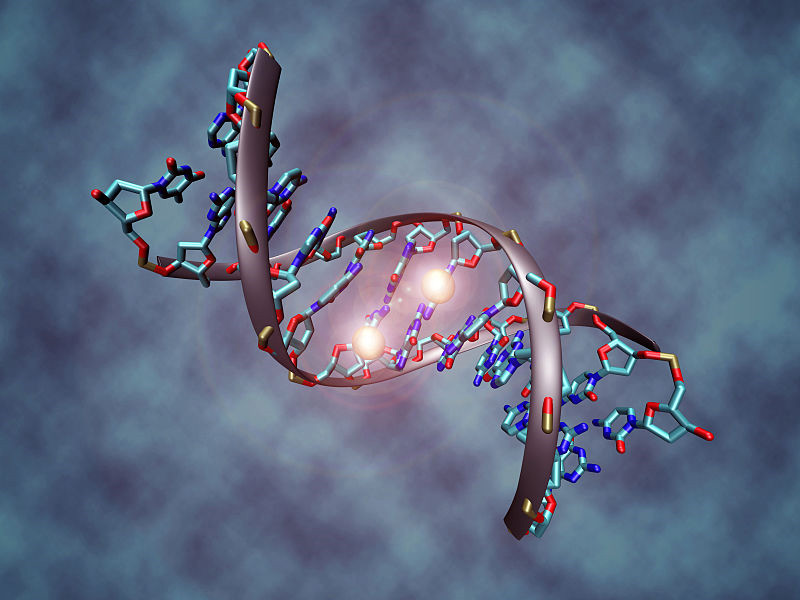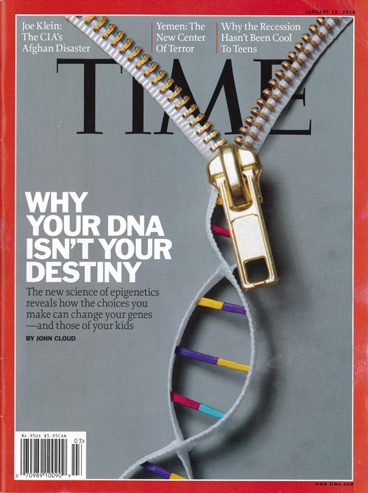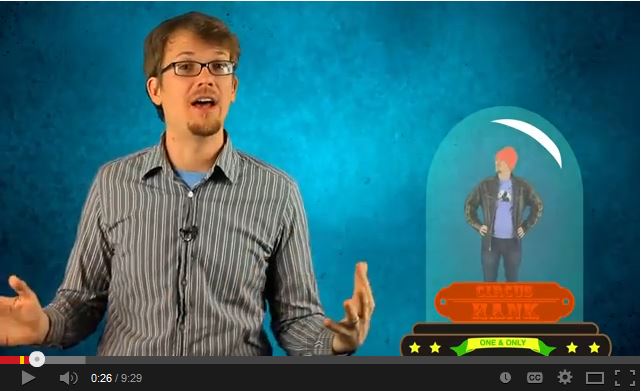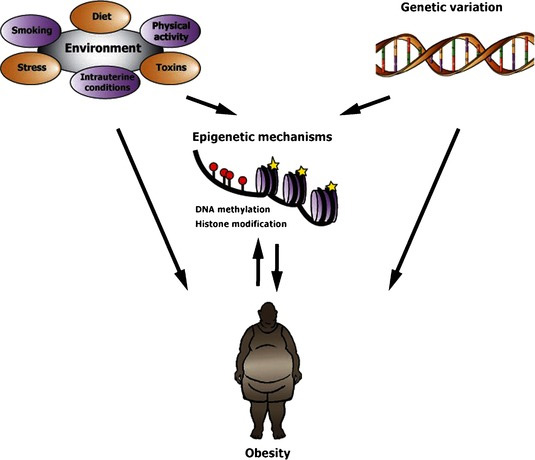How far do the branches of your family tree spread and do they determine which diseases we will or won’t develop as we age? Will it determine which genes are passed to our children? Epigenetics is the study of how external forces influence the expression of genetic programming. Join Susie T. Gibbs in her introduction to epigenetics, DNA, nutritional hormesis and alternate day intermittent fasting, and learning how to ensure the nut falls far from the tree.

DNA with genes turned “on”
How much of our destiny is controlled by our DNA? Let’s say you inherited the BRCA1 or BRCA2 gene for breast cancer. This gene is predominantly passed down by people of eastern European descent, on both the mama and daddy’s side. Should you rush out and get a double mastectomy in order to prevent your 45% or greater chance of developing breast cancer at some point before you reach the age of 70?
 What happens if you inherited the so-called “fat gene?” Are you doomed to a life of morbid adiposity and health problems? A very interesting article at Garma On Health explores the science of epigenetics from an “average Joe’s perspective.” It’s well-worth your time to read his down-to-earth explanation of a very complicated subject.
What happens if you inherited the so-called “fat gene?” Are you doomed to a life of morbid adiposity and health problems? A very interesting article at Garma On Health explores the science of epigenetics from an “average Joe’s perspective.” It’s well-worth your time to read his down-to-earth explanation of a very complicated subject.
“Joe” turned us onto Hank Green the Internet Guy and this YouTube video on Epigenetics really explains it if you don’t like to read and prefer to watch a cool video instead. He’s super entertaining!

(click on the image to see the video)
Hank Green the Internet Guy explains epigenetics in a super-entertaining and understandable way.
Is our life written for us in the womb and is life nothing but a series of pedantic steps upon a fate-driven vehicle of certain doom and gloom? Where does free will and personal choice enter the equation? To what effect do our actions determine how are genes are controlled (turned on and off). Can we influence how our DNA is expressed simply through lifestyle choices (nutrition, exercise, sleep, social interactions, positive mental attitude)? And can our actions be strong enough to supersede our genetic map and alter a future that would otherwise include an aggressive form of breast cancer or arrest our race toward morbid obesity? And how about our children? And their children? And their children’s children?
 When we ask these questions, what we are asking are questions about epigenetics–something “bigger” than DNA and genes. We’re talking about a complex group of external functions that act as switches for our genes, turning them on and off. Live Science is a great site that explains complex scientific concepts in terms even this fluffy chix can understand. To understand epigenetics, you need to have a quick lesson on DNA. They do a great job of explaining that, too. “Epi” means “above” or “on top of.” So, when we talk about epigenetics, we’re talking about external modifications to our DNA that alter gene expression (the results), without altering the DNA sequence itself. These modification alter how a cell actually reads genes.
When we ask these questions, what we are asking are questions about epigenetics–something “bigger” than DNA and genes. We’re talking about a complex group of external functions that act as switches for our genes, turning them on and off. Live Science is a great site that explains complex scientific concepts in terms even this fluffy chix can understand. To understand epigenetics, you need to have a quick lesson on DNA. They do a great job of explaining that, too. “Epi” means “above” or “on top of.” So, when we talk about epigenetics, we’re talking about external modifications to our DNA that alter gene expression (the results), without altering the DNA sequence itself. These modification alter how a cell actually reads genes.
- Gene–Lifestyle Interactions in Obesity – A model of the interplay between environmental/genetic factors and epigenetic changes in the establishment of obesity. Genes, environment, and epigenetic marks can directly lead to increased adiposity. Genes and environment can interact through their influence on the epigenome. Although epigenetic changes may cause obesity, it is often not really clear if they precede obesity, or vice versa
As nutritional science progresses, epigenetics gains greater momentum in its relationship to diet and destiny. It’s become increasingly clear that the old saying, “You are what you eat,” could be a viscerally literal aphorism. As we explore the science behind alternate day fasting and calorie restriction, we’ll bring you a focused picture how epigenetics through nutritional hormesis can potentially rewrite the face of our future health and well-being. We’ll delve into the tools that force our cells to turn off switches that would otherwise be turned on by our genetic code, perhaps preventing deadly diseases such as breast cancer, heart disease, diabetes, asthma, Parkinson’s, Alzheimer’s, auto-immune disease, and even obesity. We invite you to learn more about alternate day fasting and epigenetics as we bring you the science and studies behind intermittent fasting with calorie restriction along with studies and information from leading reasearchers like Krista Varady, PhD and others.



Recent Comments